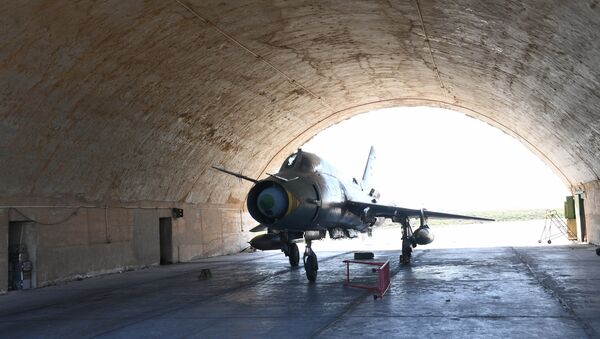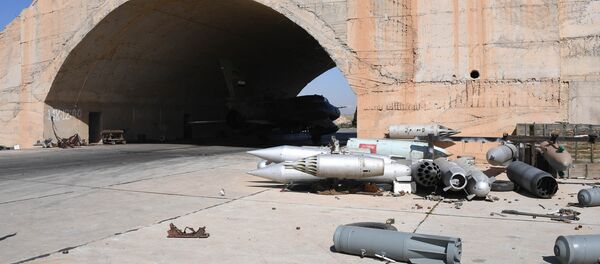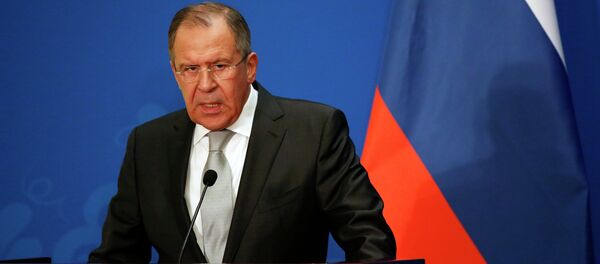At the same time, experts are raising questions about US President Donald Trump's motive behind the move.
Just a week ago Washington signaled that toppling Syrian President Bashar al-Assad is no longer a priority for the US in Syria.
"You pick and choose your battles and when we're looking at this, it's about changing up priorities and our priority is no longer to sit there and focus on getting Assad out," US Ambassador Nikki Haley to the United Nations told journalists March 30.
However, the Idlib chemical incident, which was groundlessly blamed on Damascus by Washington, had become the game-changer.
Instead of carrying out a thorough investigation into the case, the US launched 59 Tomahawk cruise missiles at the Syrian military airfield in Ash Shayrat, located about 40 kilometers (25 miles) from the city of Homs.
Sputnik got in touch with Israeli political analyst Avigdor Eskin asking him to comment on the issue.
"As we know by now, this was primarily a 'PR attack' and not, really, a military strike," Eskin suggested, "It was admitted that the US military warned Russia about the coming strike."
The United States had provided Russia with advance information regarding its missile strikes on a Syrian airfield through "existing channels of exchanging information."
However, as Secretary of State Rex Tillerson confirmed Thursday "there were no discussions or prior [top-level] contacts, nor had there been any since the attack with Moscow." Washington therefore left no room for Moscow to potential prevent the attack by solving the contradiction
"President Trump wanted to send a message to 'whom it may concern.' In any case, there must be an investigation. Trump did it for his internal political needs without seeking to get into conflict with Russia, but he could do better by showing restrain," Eskin explained.
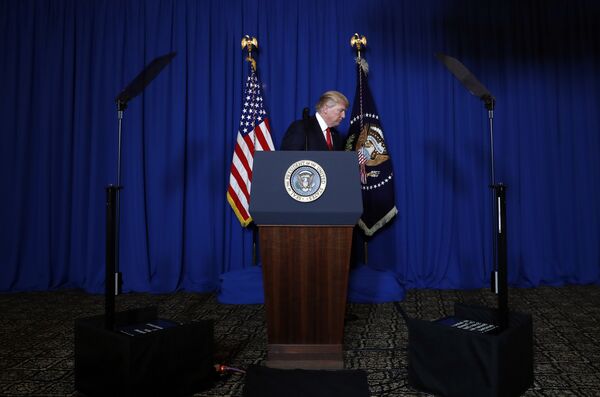
In his recent op-ed Radio Sputnik commentator Ilya Kharlamov noted "it looks as if the decision to launch Tomahawks at the Syrian air base, which was used to conduct airstrikes against terrorists, was taken spontaneously, under the influence of emotions."
However, serious political decisions should not be driven by emotions.
"Of course, the use of chemical weapons by anyone is usually horrifying. We are talking about Syria where about half a million were killed due to the clashes between the warring parties. The level of violence has gone down since Russia interfered. But the bloodbath continues. Therefore, one should not be overemotional about what had happened," Eskin told Sputnik.
The Trump administration said that the Tomahawks were launched at the Syrian military airfield "in retaliation" for the alleged chemical attack.
Earlier the Russian Defense Ministry highlighted that Damascus did not use chemical weapons since the Assad government destroyed all its chemical stockpiles under a deal brokered by Moscow and Washington in 2013.
The ministry explained that the Syrian Air Force struck a large militant ammunition depot, which stored military hardware, as well as chemical weapons intended for Iraq.
"It seems that the Syrian attack and the explosion of the stored chemical weapons have yet to be investigated. The fact is that the illegal [chemical] weapons were stored by the opposition. There is also no confirmed information that the Syrian government forces knew that they were attacking a chemical weapons depot," the Israeli political analyst told Sputnik.
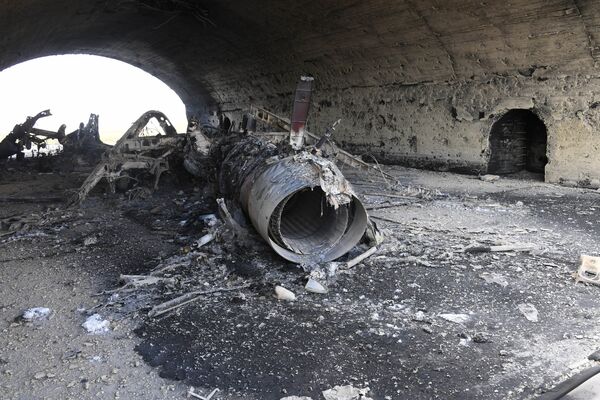
What are the possible consequences of the US missile attack on Syria? Could the attack become a prologue for a full-scale ground operation of US military force in the country?
Unlikely, Eskin believes.
"There is no ground for rumors about US boots presence in Syria," according to the Israeli political analyst.
Moscow signaled that Washington's missile attack against Syria has dealt a heavy blow to the fragile balance in the region. Will the strike nip in the bud the idea of a potential Russo-American détente under Trump?
"Not really. Perhaps, even on the contrary. Now we see how important the US-Russian coordination is. I hope that this will enhance the process of the détente since the need is so obvious," Eskin told Sputnik.
It appears that the Russian message has been heard in Washington.
Pentagon spokesperson Michelle Baldanza told Sputnik that the US Department of Defense still wants to communicate with Russia when it comes to Syrian airspace and the memorandum on incident prevention.
"The Department of Defense maintains the desire for dialogue through the flight safety channel," Baldanza stated. "It is to the benefit of all parties operating in the air over Syria to avoid accidents and miscalculation, and we hope the Russian Ministry of Defense comes to this conclusion as well."
However, Lavrov noted that Russia hopes that the latest US missile attack on the Syrian military airfield won't lead to "irreversible results."
"All this causes damage to the already undermined relations between Russia and the United States, but I hope these provocations will not lead to irreversible results," Lavrov stressed.
Russia will draw conclusions about the prospects of the US-Russian following the deadly US missile strike on a Syrian airfield, Foreign Minister Sergey Lavrov told reporters.
He also criticized the "Obama-era functionaries" who enthusiastically predict a breakdown in US-Russian relations following the US attack in Syria.
"I hope that they will be put to shame, although, of course, we will draw our own conclusions for our future relations," Lavrov said.
The views expressed in this article are solely those of the author and do not necessarily reflect the official position of Sputnik.
